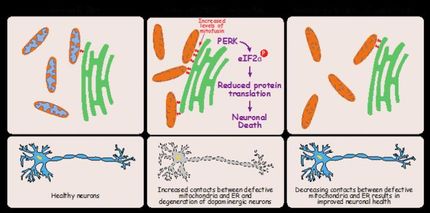Buck researchers identify new 'druggable' target for sporadic Parkinson's disease
Advertisement
Research at the Buck Institute shows the same mechanisms that lead to neuronal cell death in mice genetically fated to develop Parkinson's disease (PD) are involved in the much more common sporadic form of the age-related, neurodegenerative disorder that robs people of the ability to move normally. The research identifies new targets that show promise for drug development for an incurable condition that affects as many as one million Americans.
The study focused on parkin - a protein involved in the degradation and purging of both damaged proteins and mitochondria via a process known as lysosomal autophagy. Mutations of parkin are linked to a rare familial form of PD, whereby the cell loses the ability to recycle its internal garbage. PD is characterized by the accumulation of damaged proteins and mitochondria in the area of the brain where the neurotransmitter dopamine is produced.
In this study scientists, led by Buck faculty Julie Andersen, PhD, showed that oxidative stress, which is one of the main drivers of sporadic PD, affected the parkin protein in the same way that genetic mutations do. "This gives us a significant insight into sporadic PD which accounts for 95 percent of all cases of the disease," said Andersen. "We also determined that the signaling pathway involved in the molecular dysfunction is a good target for drug development."
The pathway involves two master regulatory proteins, PGC-1alpha which affects the synthesis of new mitochondria and TFEB which is involved in breaking down old mitochondria. Both are down-regulated following oxidative stress. When scientists genetically increased the expression of PGC-1alpha in the affected mice, mitochondrial function was restored, preventing the degeneration of dopaminergic neurons affected by PD.
Researchers in the Andersen and Lithgow labs are now screening compounds in human cell culture and in nematode worms that have been genetically engineered to develop PD-like characteristics. The goal is to identify compounds that target the pathway and prevent the neurotoxic damage associated with the disease.























































